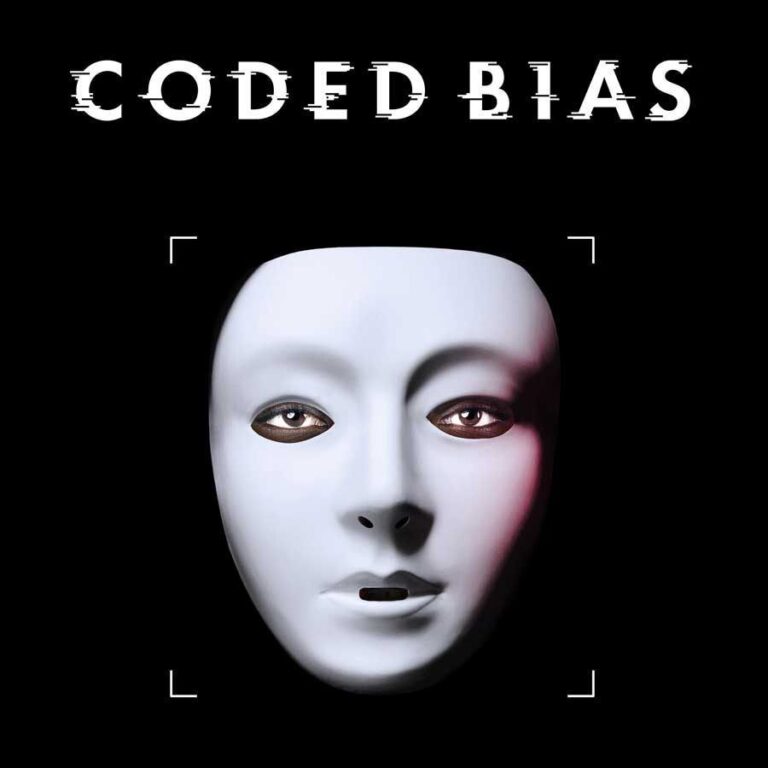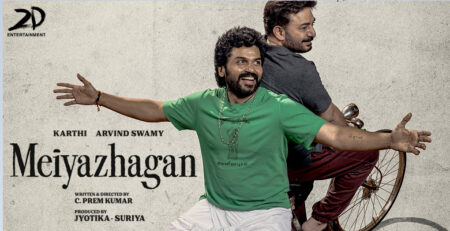Netflix documentary Coded Bias, directed by Shalini Kantayya, delivers an alarming clarion call on facial recognition tools and technologies.
The face, said Cicero, is a picture of the mind with the eyes as its interpreter. Our faces are the most recognisable carriers of our identity. Faces tell stories. At times they reveal a lot more than what their owners really intend to. That’s why we are able to tell if a person is angry, sad or tensed just by looking at a person’s face even though the individual wouldn’t utter a word about it. Facial recognition technologies try to work on this sentiment. Powered by artificial intelligence, today computers are able to see and identify people by scanning their faces. Face-tech is able to look at a digital image or a video frame and match it with a database of people and identify similarities.
That said, this is not as hunky-dory or simplistic as it sounds. Coded Bias, a documentary directed by Shalini Kantayya and now streamed on Netflix, shows facial recognition technologies hold the potential to change the lives of innocent people in unimaginably dangerous ways and hence it should be nipped in the bud. Coded Bias is the story of how a Ghanaian-American computer scientist and digital activist, Joy Adowaa Buolamwini, waged a war, along with a small pack of concerned citizens, on the wrongful application of facial recognition technologies in the US and how her mission led to the banning of facial recognition technologies for policing in geographies such as San Francisco and Oklahoma.
Biased intelligence
Joy works with the MIT Media Lab. She founded the Algorithmic Justice League, a nonprofit body that tracks down biases in decision-making software applications. It was a chance discovery that facial recognition systems are not able to properly recognise the faces of most non-white people, especially that of Blacks, women and people with non-white ethnicities, that led Joy to dig deep into the world of face-tech. Her research paper on the biases in Amazon’s facial recognition software Rekognition, which the Jeff Bezos company was actively pushing for policing applications in the US, made headlines for its candid observations.
Joy’s premise was fairly simple. Artificial intelligence is not infallible. It is infested with all the biases that exist in the world it is created in. History shows it was white men who coded and classified AI programmes so far, especially during the formative years of AI. Hence, most technologies in the field reflect the inherent biases of their makers. For instance, in America, AI algorithms are biased against Blacks and Hispanics. When such technologies are used in policing, and when applications of such technologies are automated, injustice is born.
Wrong filters
In June 2018, in an article she wrote for the New York Times, titled When the Robot Doesn’t See Dark Skin, Joy argued that her experience is a reminder that AI, often “heralded for its potential to change the world, can actually reinforce bias and exclusion, even when it’s used in the most well-intended ways”. She called the problem the “coded bias”. Joy said that AI systems infested by unconscious and conscious biases are now used for making “informed” decisions on a slew of matters, from deciding who will receive social welfare benefits and how to profiling potential criminals.
This is dangerous. In a society biased against black skin, chances are high that its AI systems will reflect the biases and will end up reaffirming the biases rather than eradicating them. As a result, more blacks and women will get rejected from jobs that they otherwise deserve, more Asians will find it difficult to get into jobs that white people think they don’t fit in, or, worse, more Blacks will be tagged potential criminals as automated AI, armed with facial recognition technologies, screen them on the streets, offices and similar spaces.
An impressive line-up of experts
In Coded Bias, Shalini Kantayya, known for her debut work, Catching the Sun, uses the story of Joe to expose the inherent and emerging dangers of AI and in that journey, the activist-filmmaker introduces to her audience a clutch of characters, from mathematician Cathy O’Neil, who wrote the famous treatise on misuse of big data — Weapons of Math Destruction — to organisers of the British privacy and surveillance organisation Big Brother Watch and Meredith Broussard, who’s known for her book, Artificial Unintelligence: How Computers Misunderstand the World.
The 85-minute film also features, though briefly, Google dissident Timnit Gebru and author and political scientist Virginia Eubanks who wrote the acclaimed work, Automating Inequality. It would’ve added more value if Kantayya could rope in Shoshana Zuboff, whose book, The Age of Surveillance Capitalism: The Fight for a Human Future at the New Frontier of Power, exposed the many chinks in the armour of Big Tech and its myriad applications.
What needs to be done?
Coded Bias is very in-your-face with the insights it delivers. When the data that powers AI systems become corrupt and riddled with racial, gender and ethnic prejudices and the systems start showing their dangerous biases through the automated filtering infrastructure they power, for the vulnerable stakeholders the data become destiny. Such AI will end up making the rich richer and the poor poorer.
Such AI doesn’t reflect the beautiful vulnerabilities of being human, which makes us compassionate and empathetic. Coded Bias reminds us that it’s high time we started making AI more compassionate, more considerate and more inclusive. As things stand now, we are not making much progress, sparing the odd battles of the likes of Joe or the members of the Big Brother Watch. On that cue, Coded Bias delivers an alarming clarion call on bad and unethical AI and facial recognition technologies.




